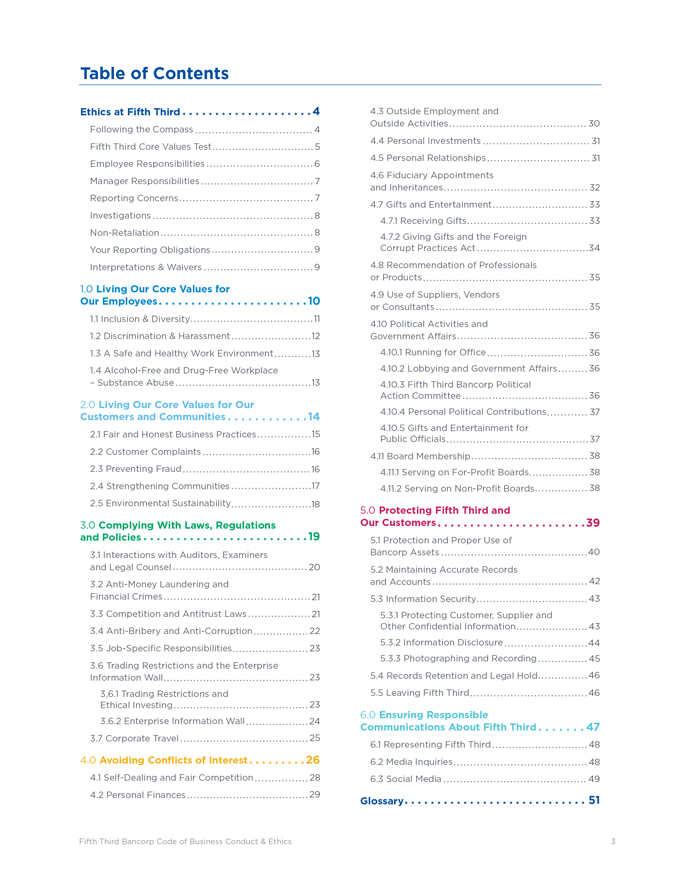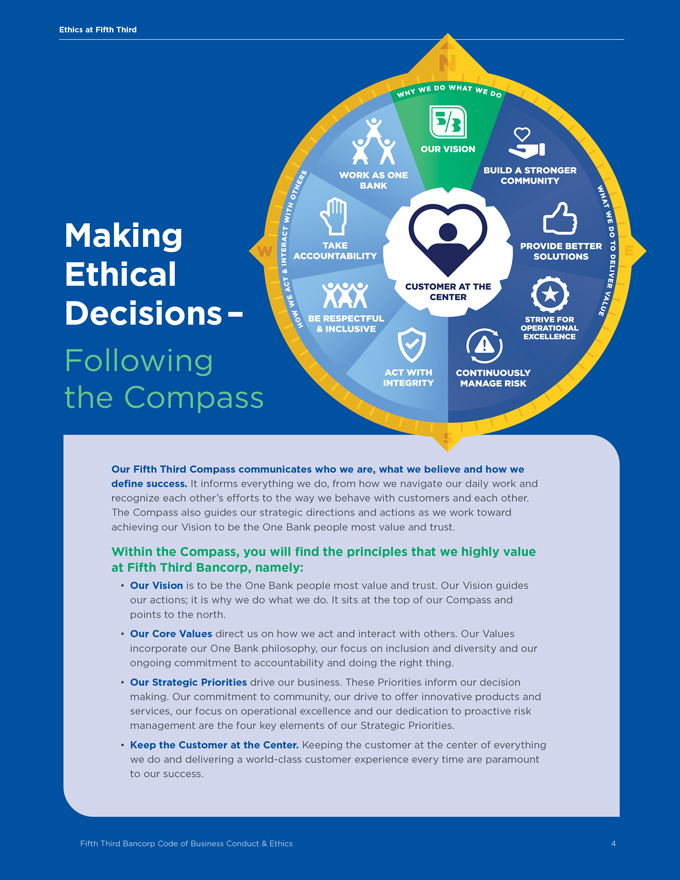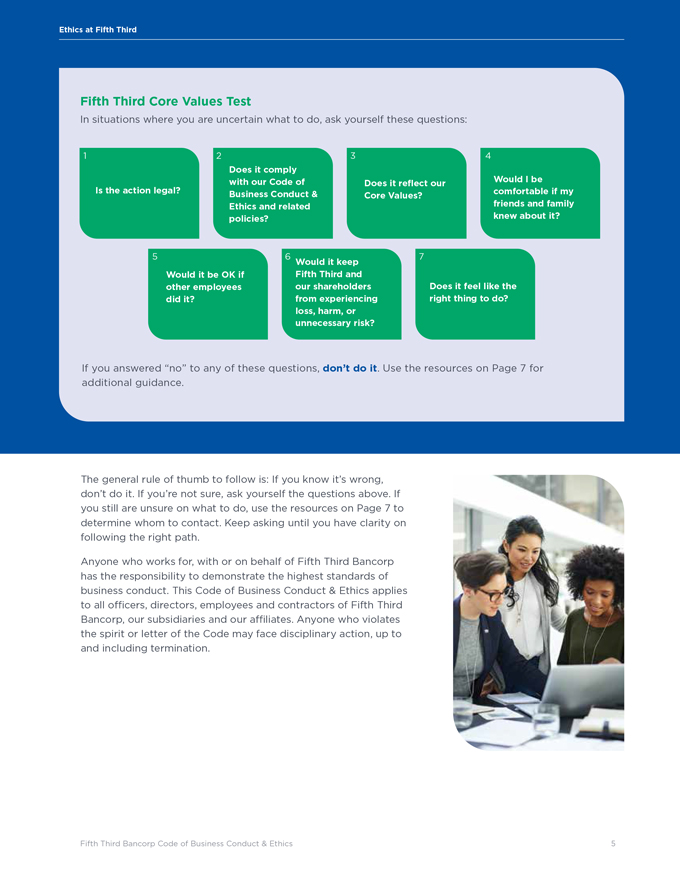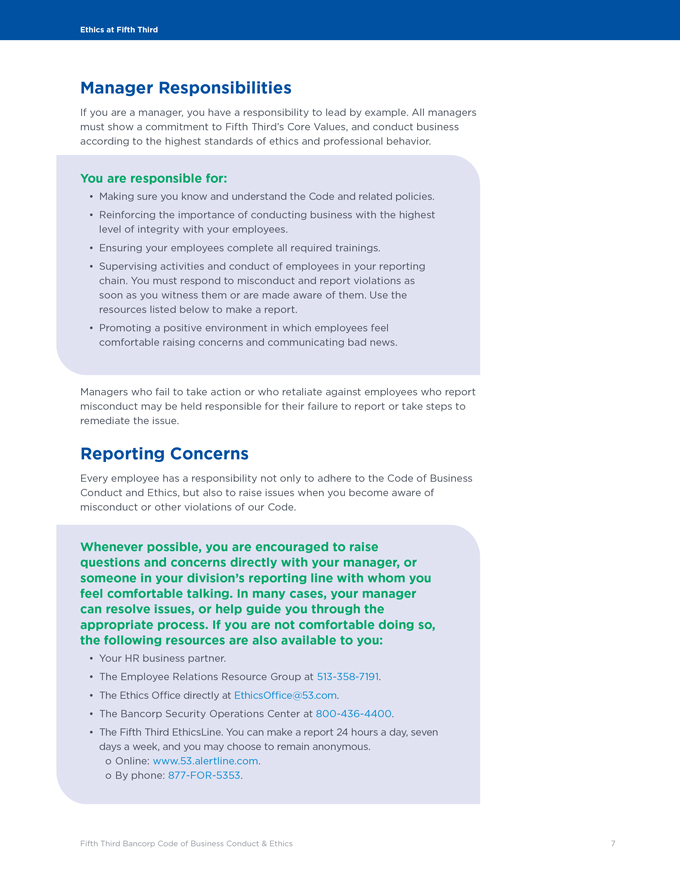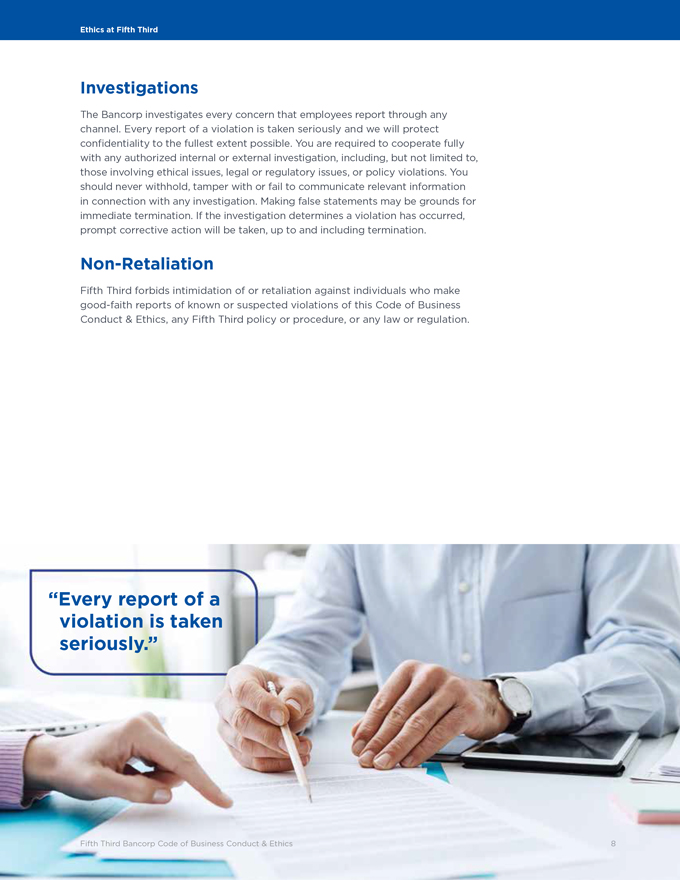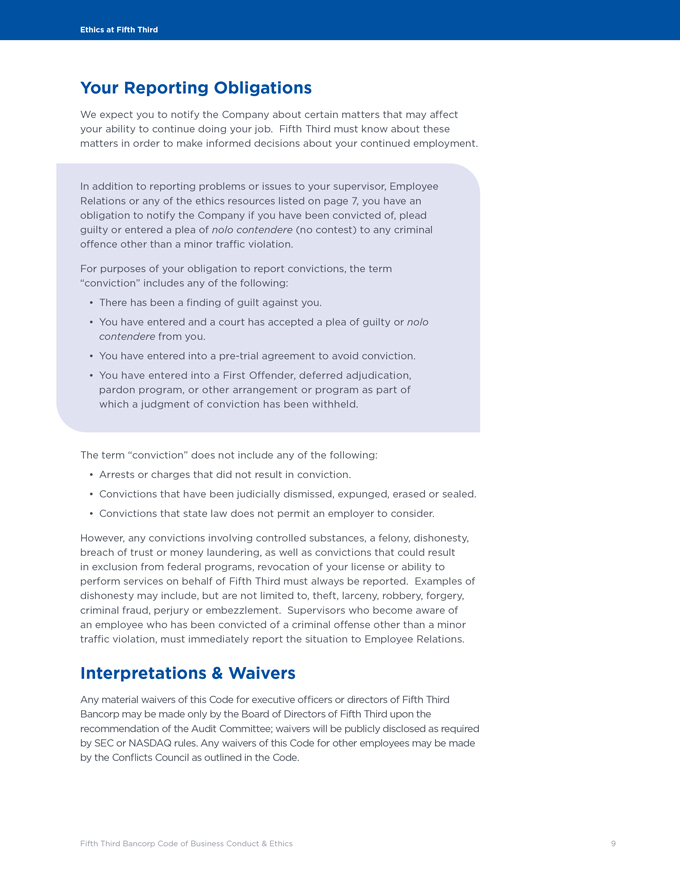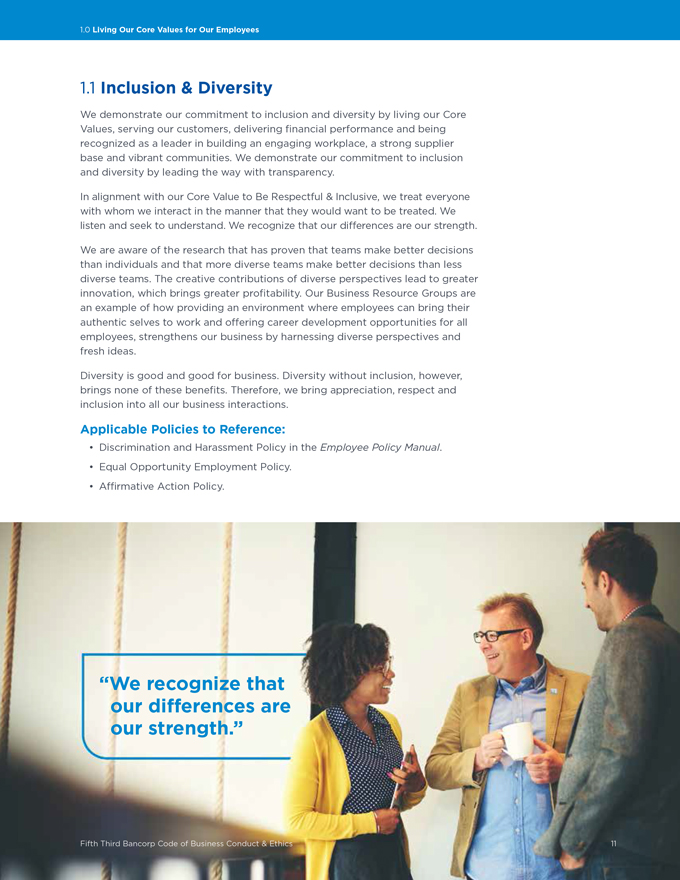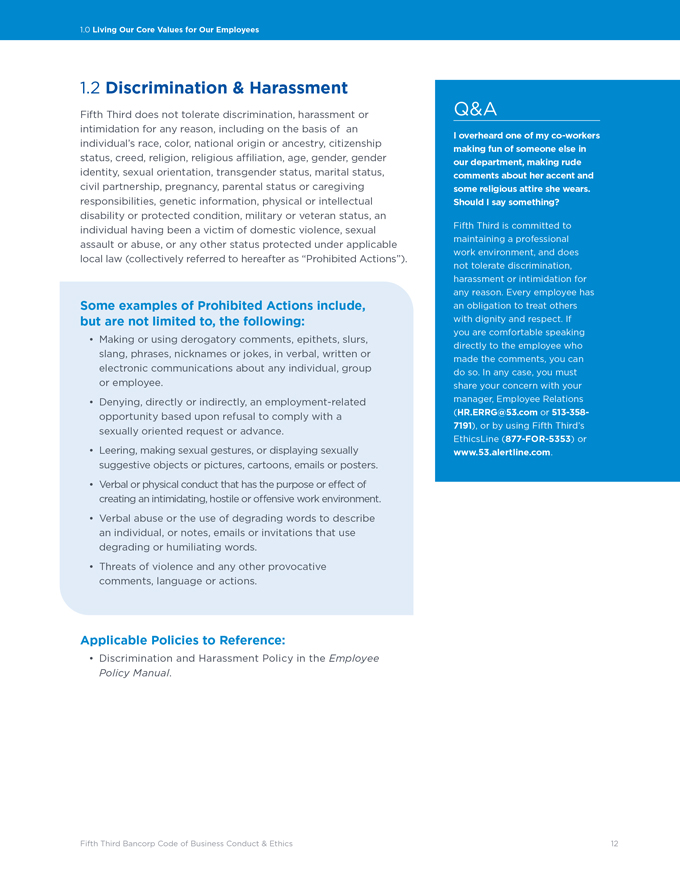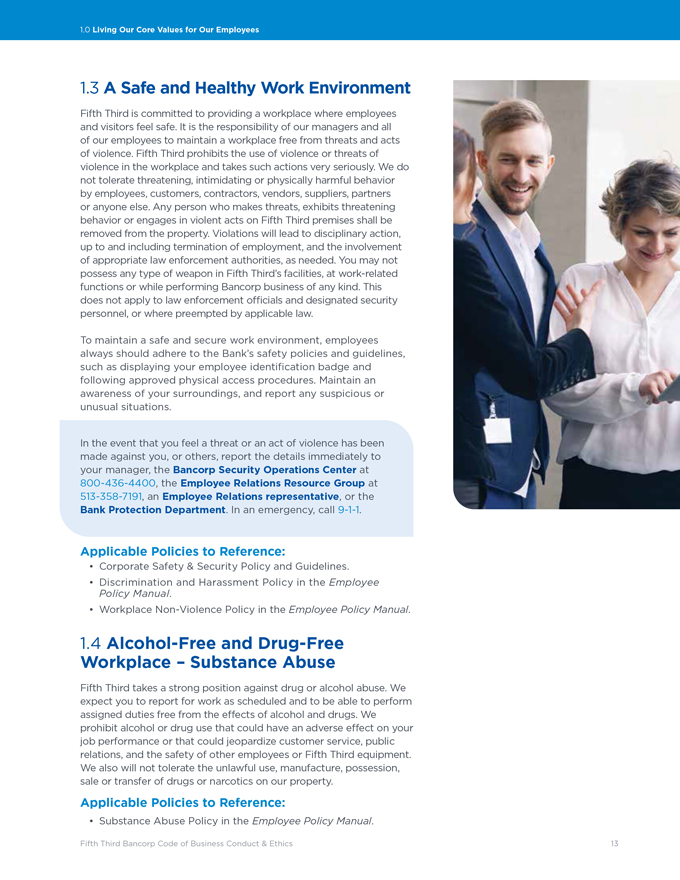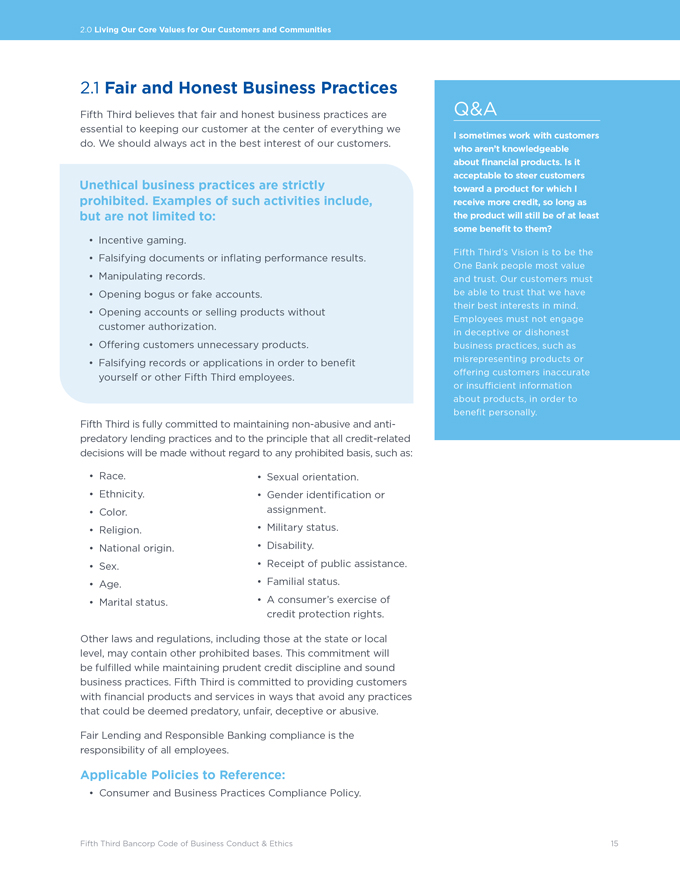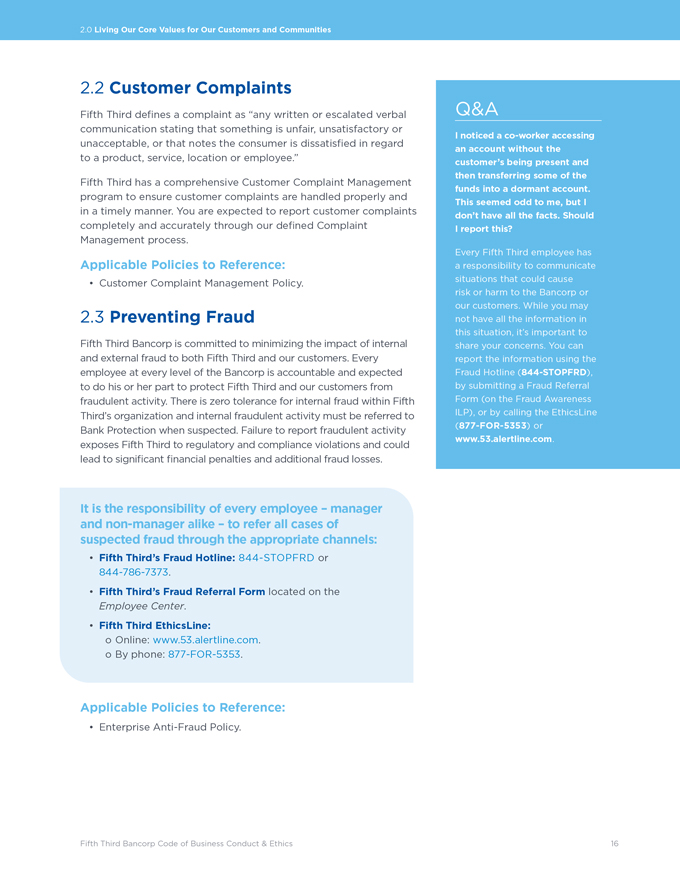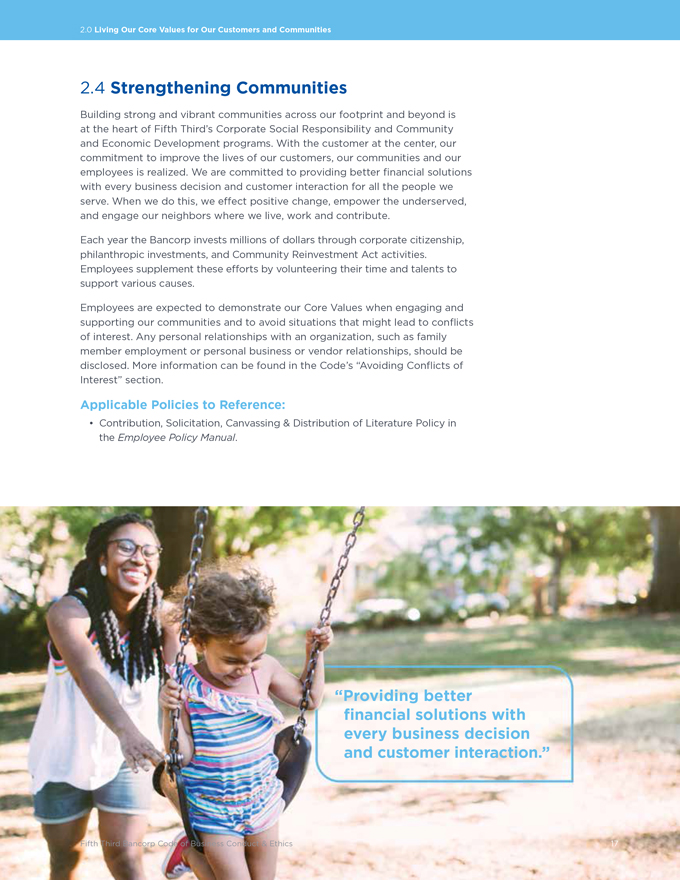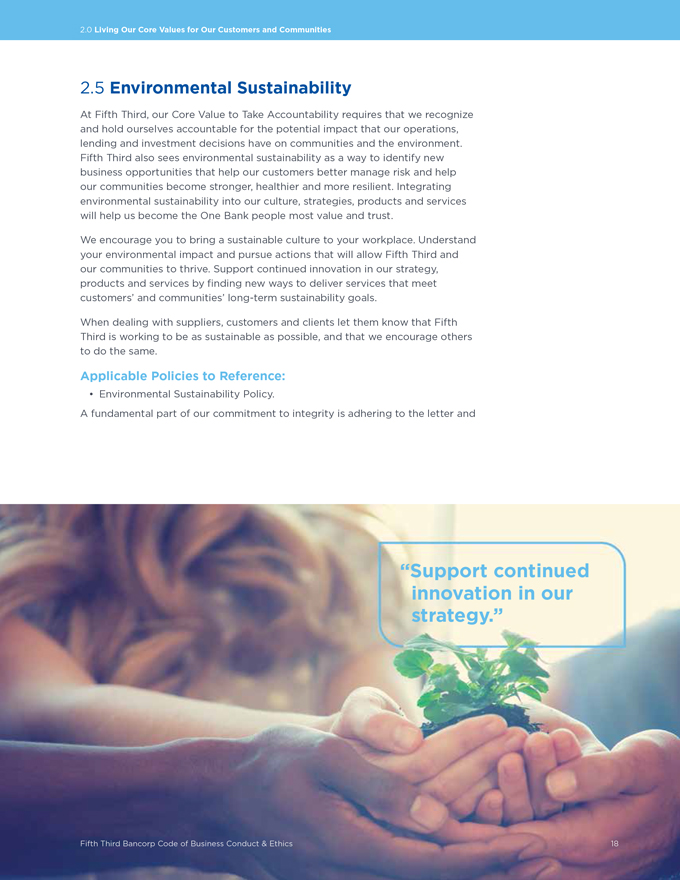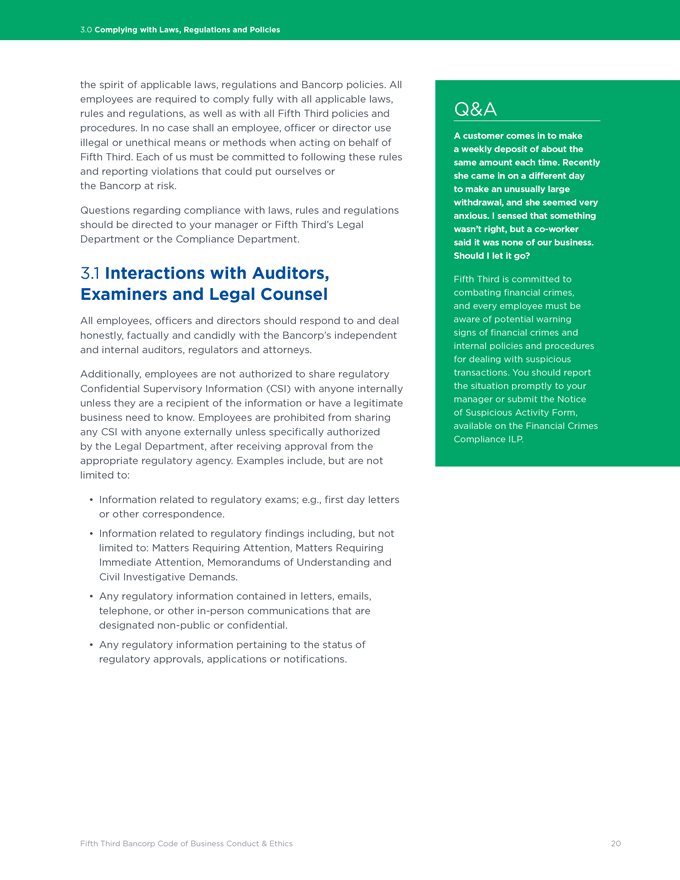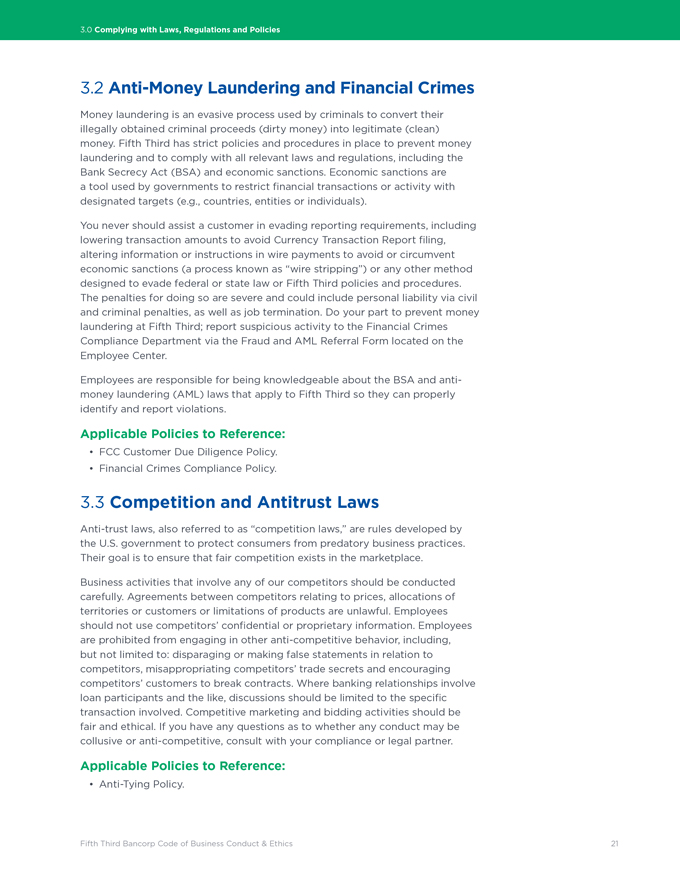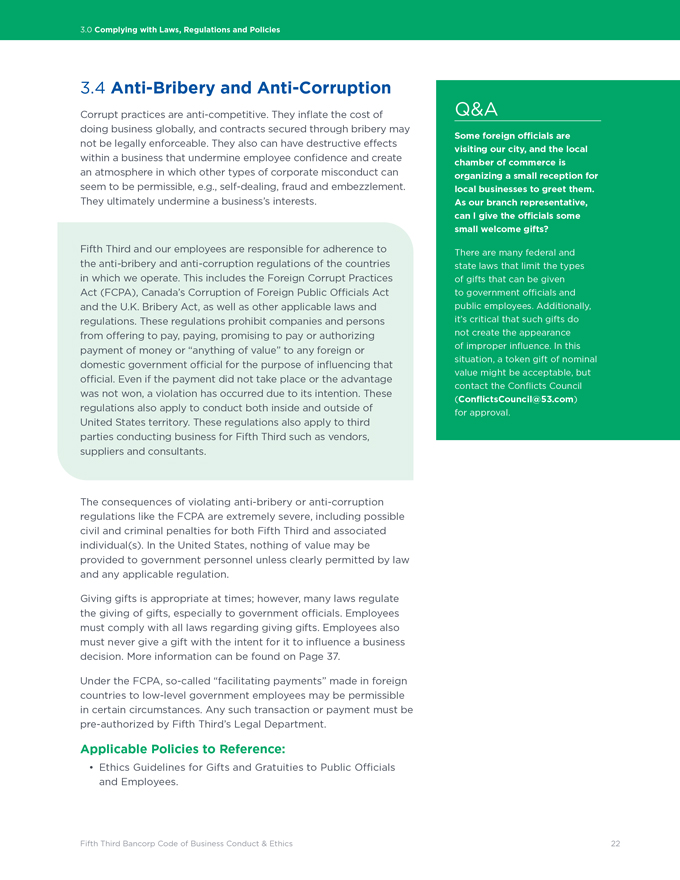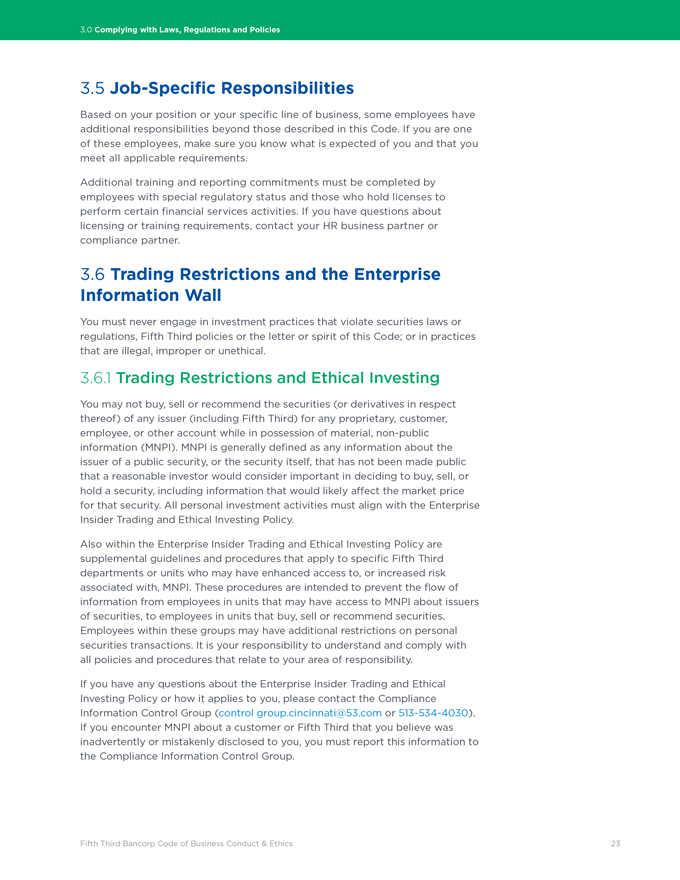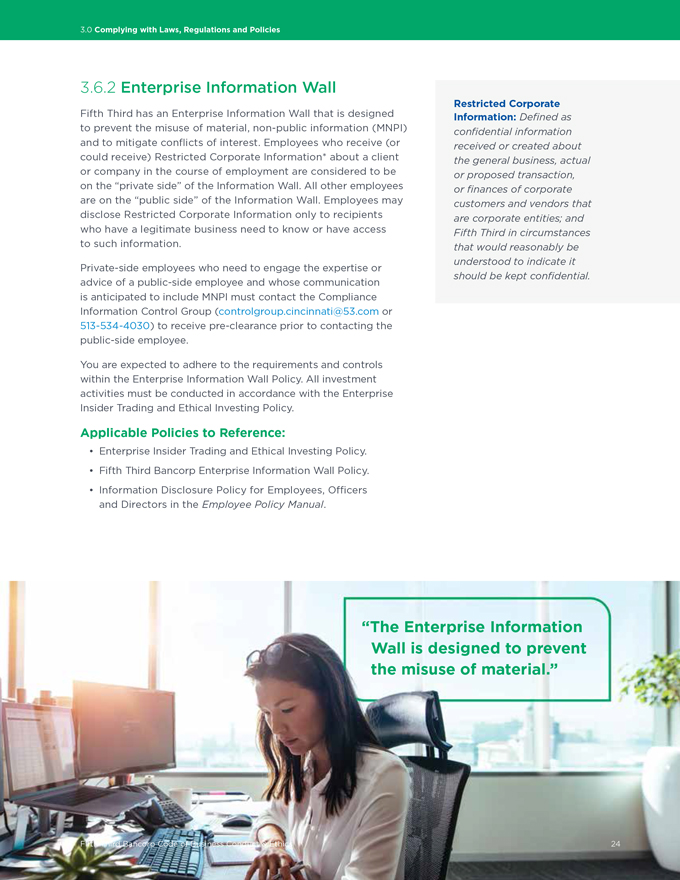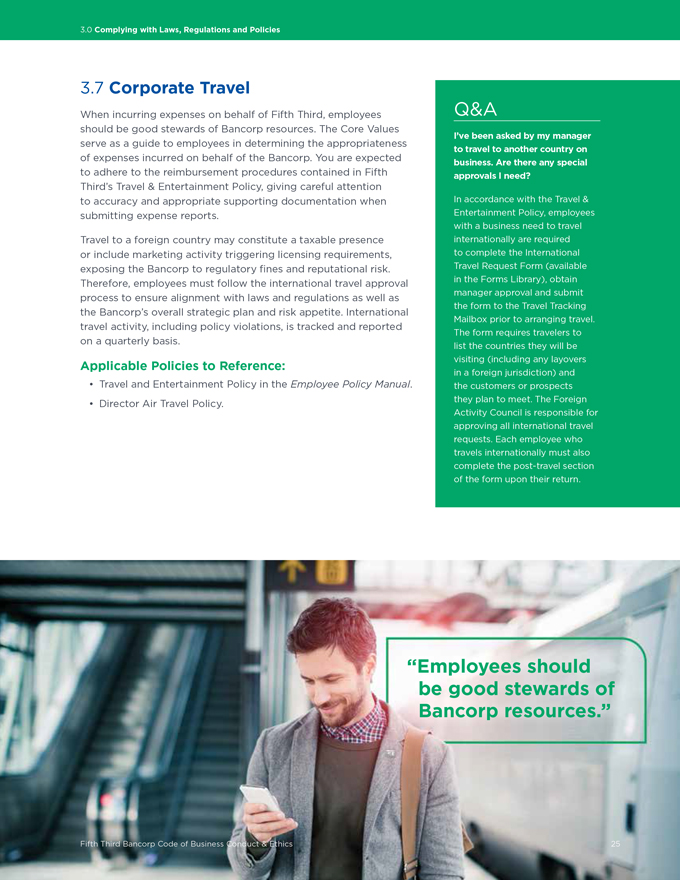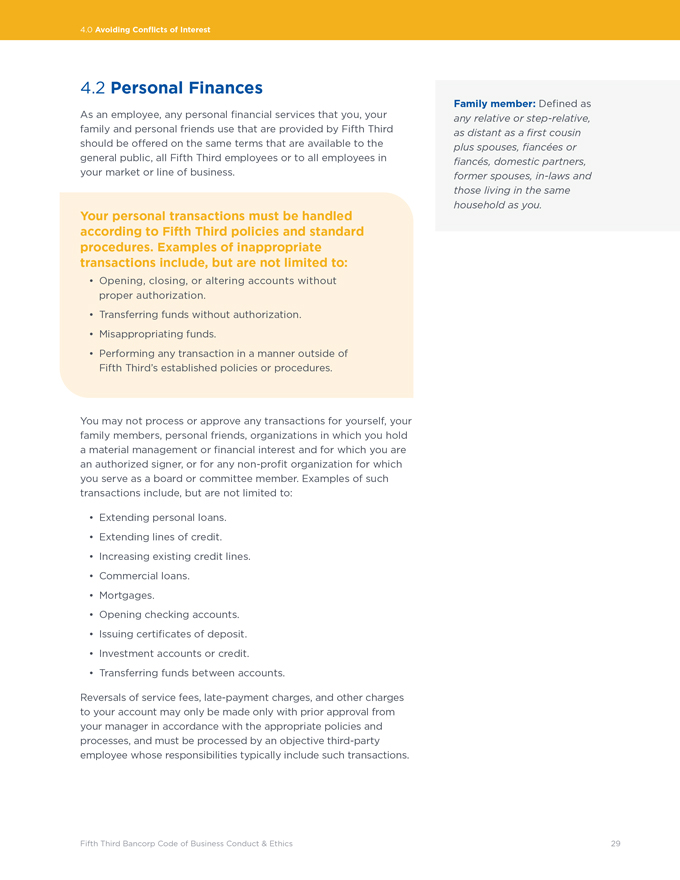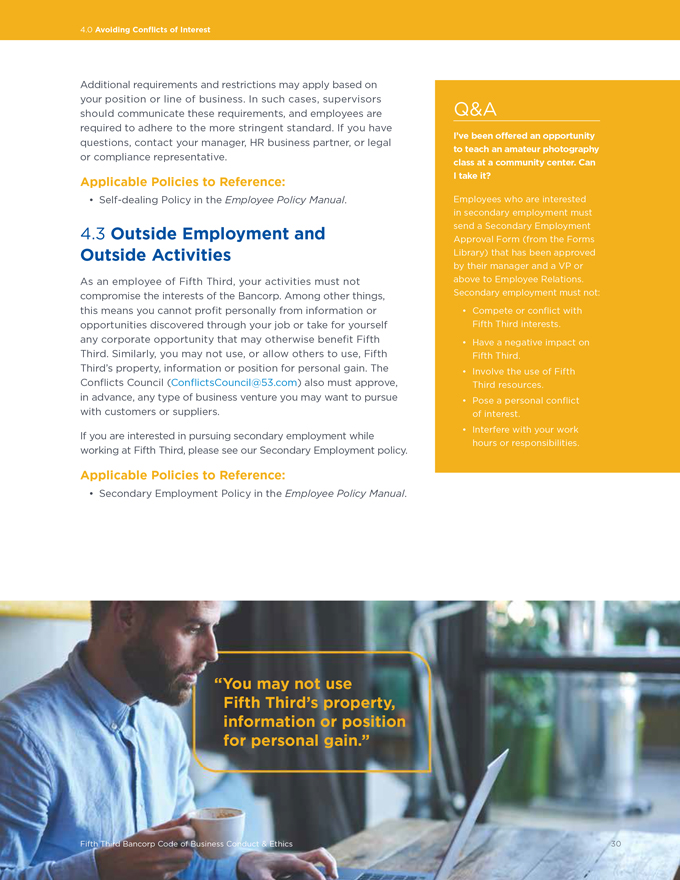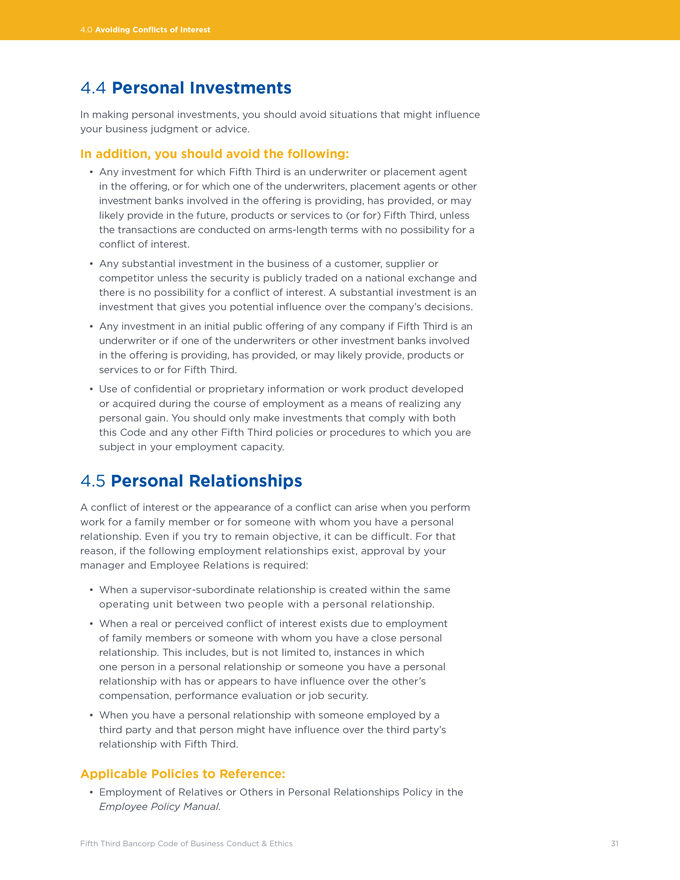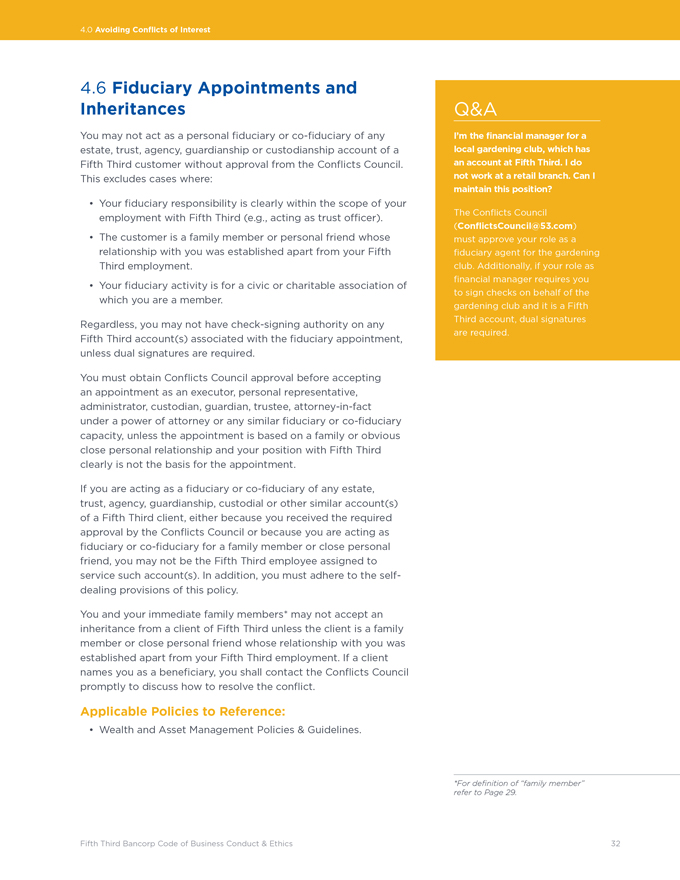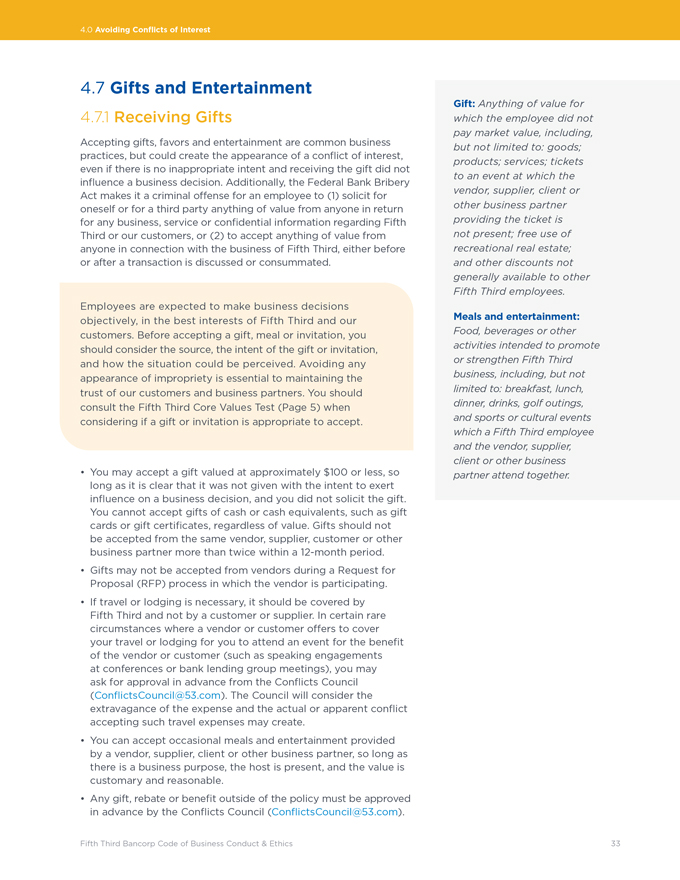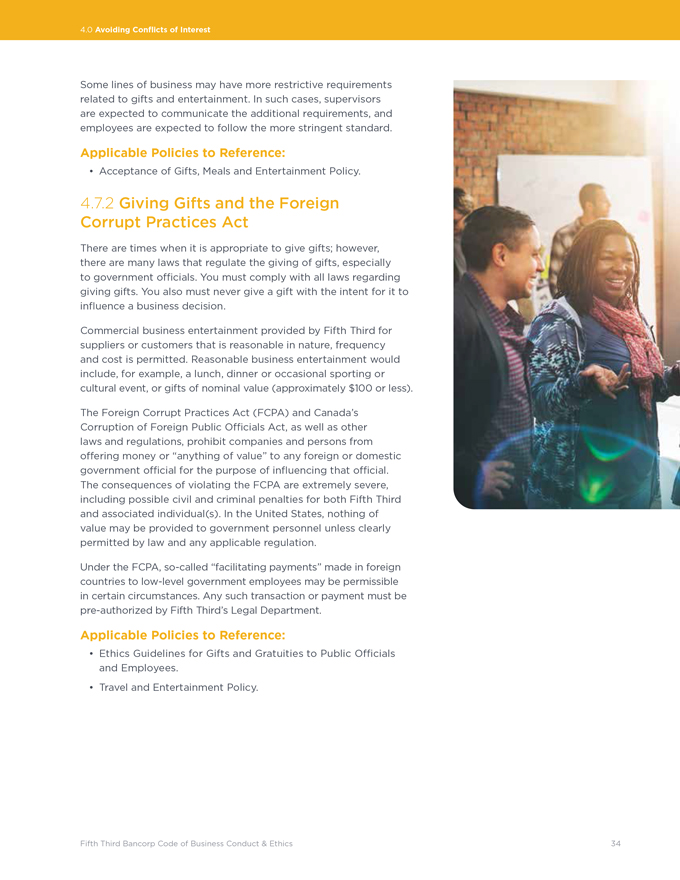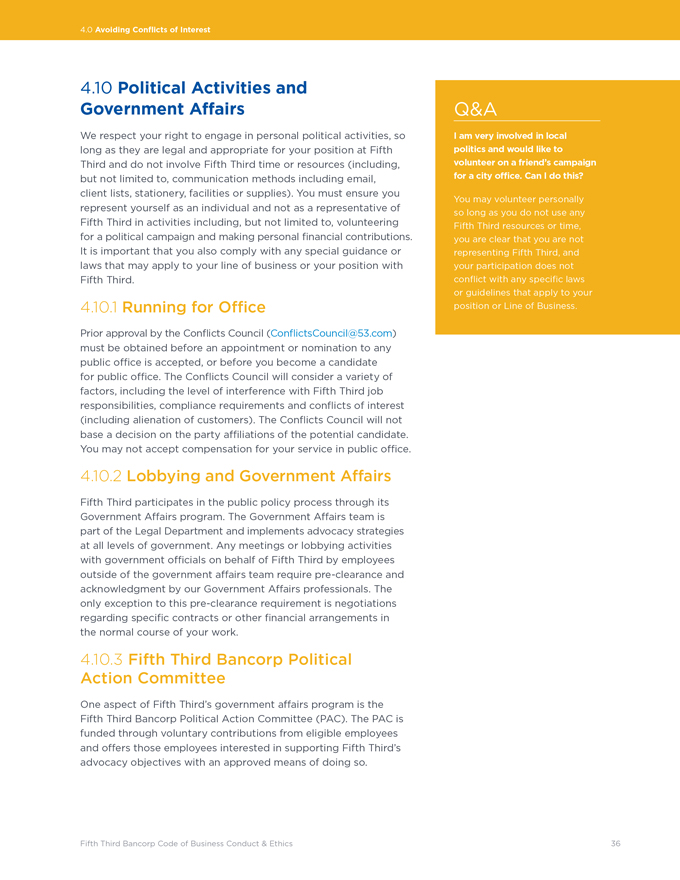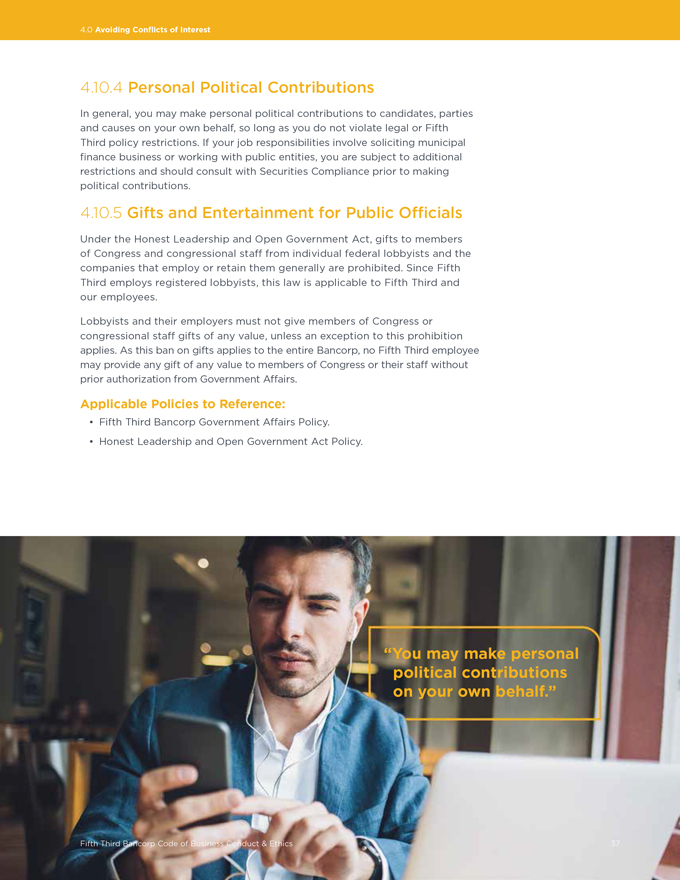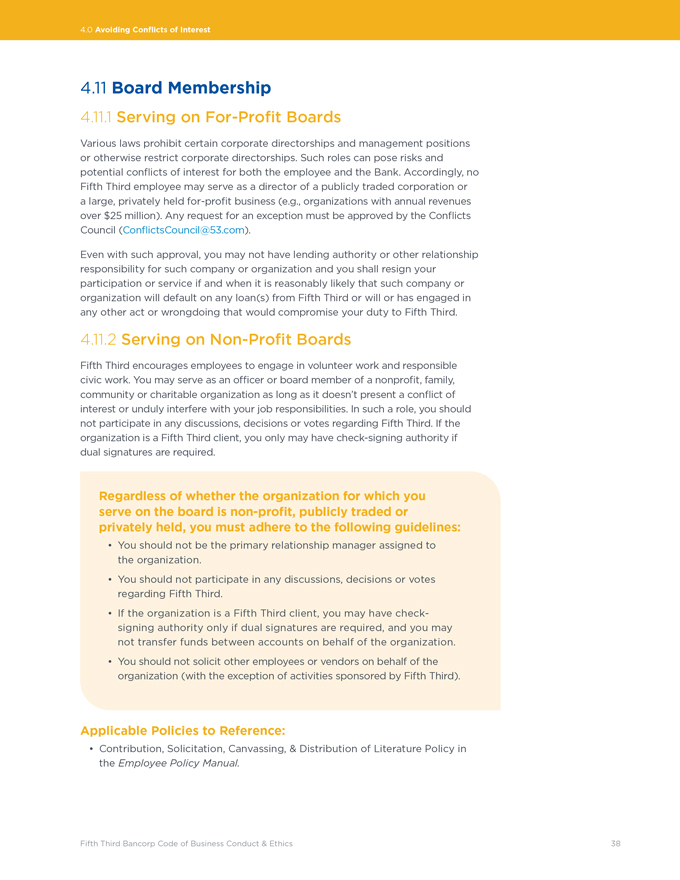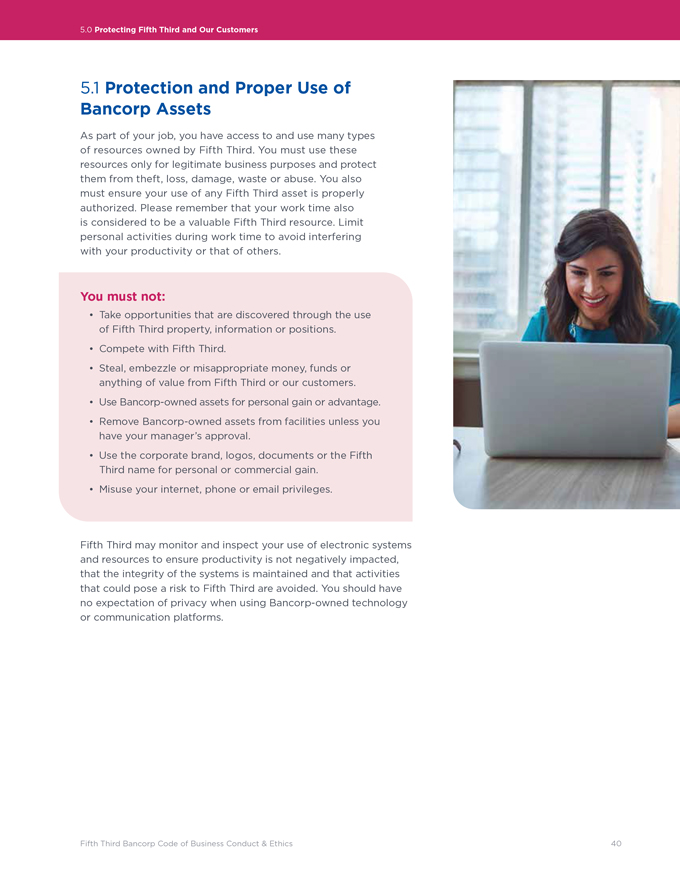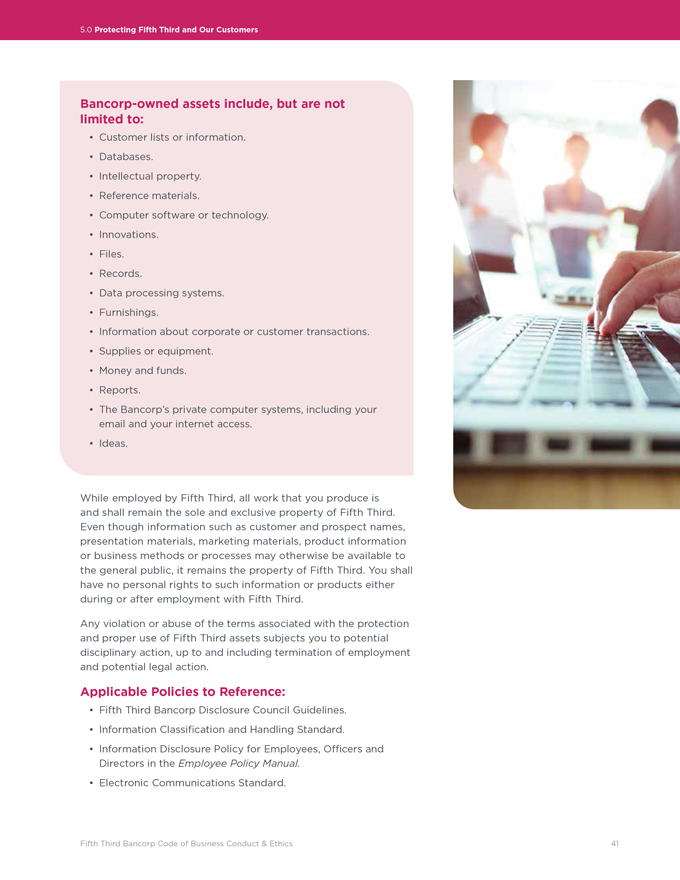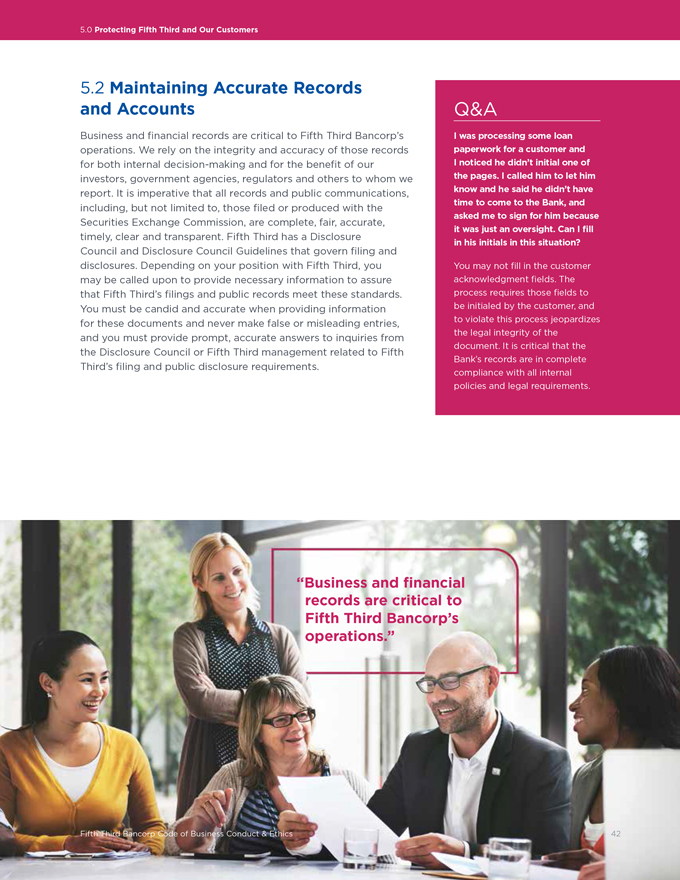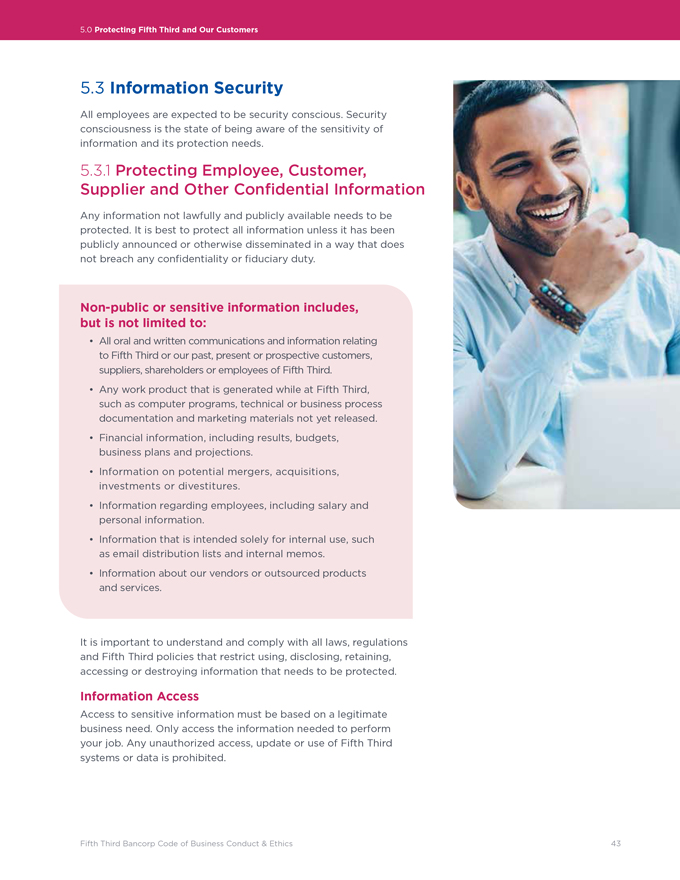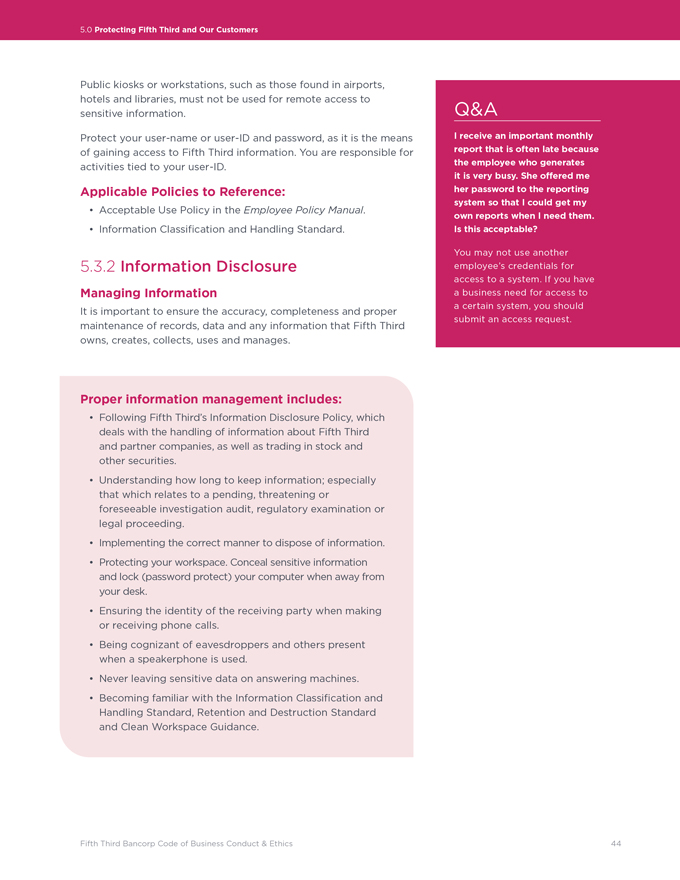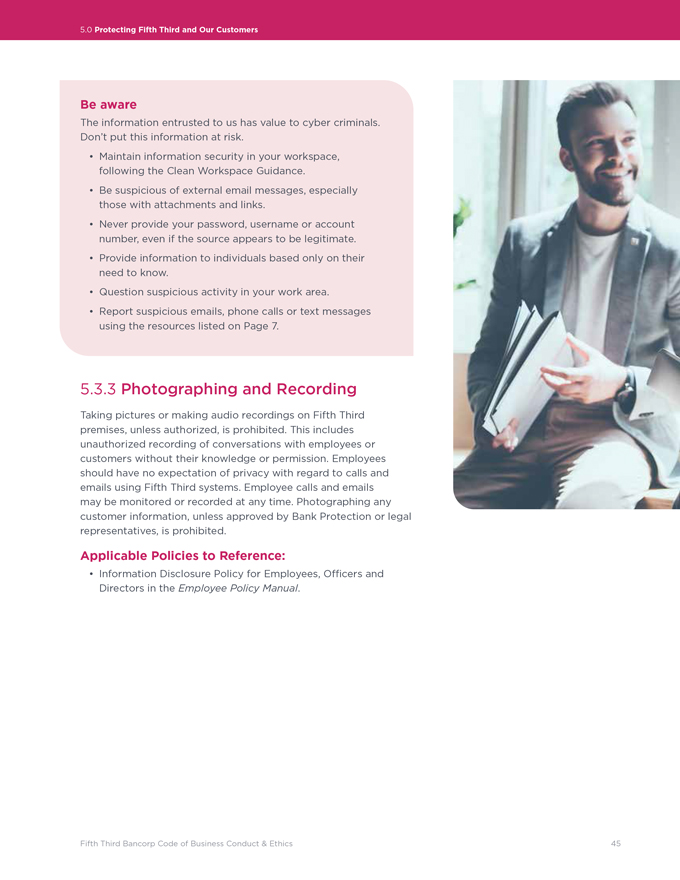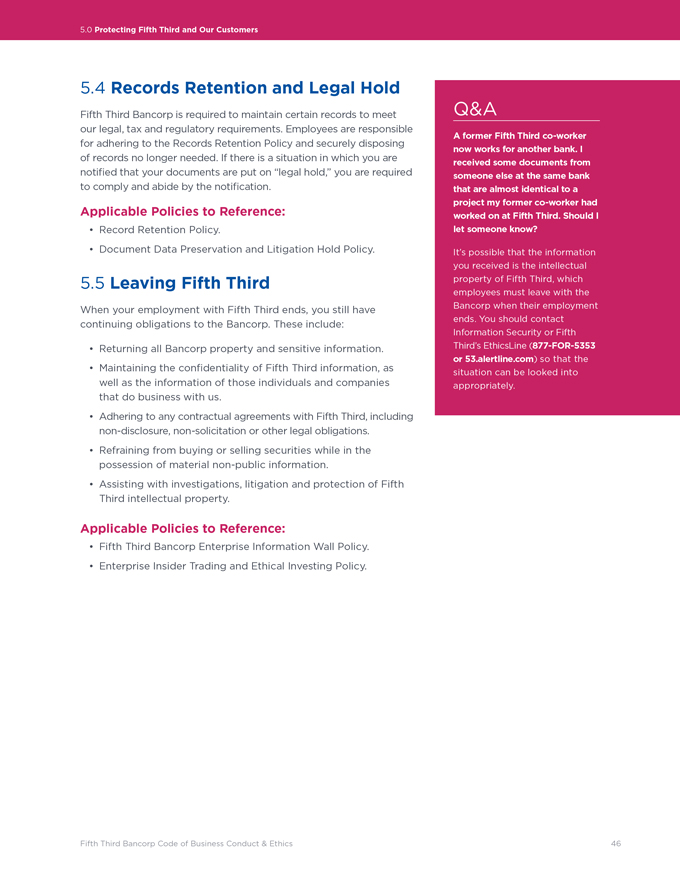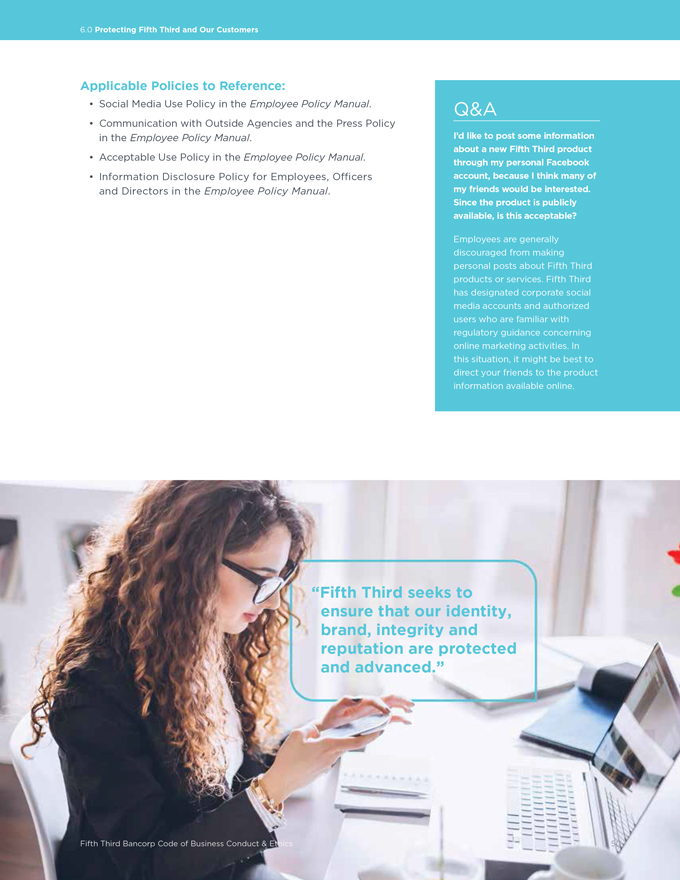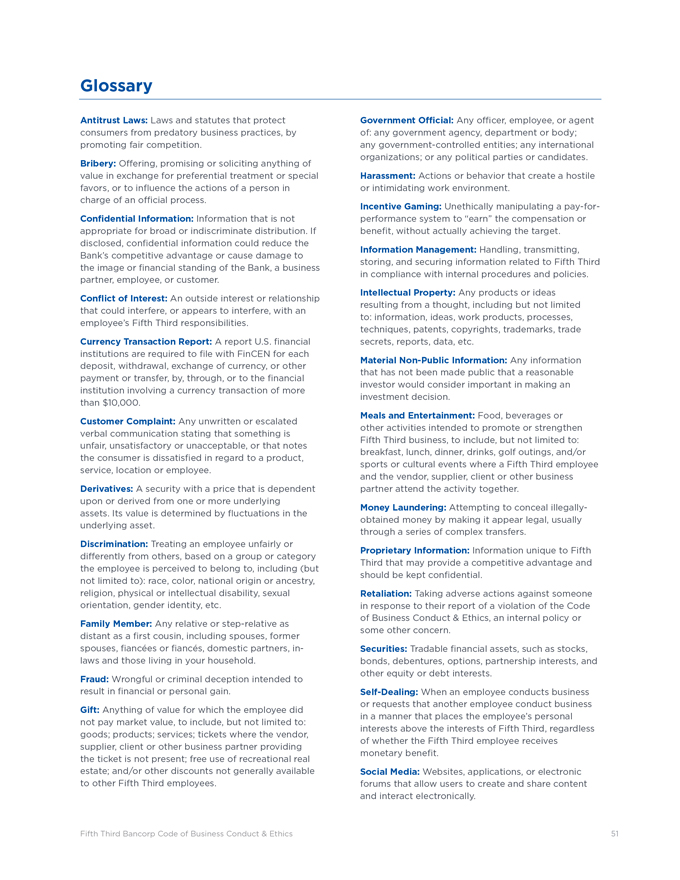
Glossary Antitrust Laws: Laws and statutes that protect consumers from predatory business practices, by promoting fair competition. Bribery: Offering, promising or soliciting anything of value in exchange for preferential treatment or special favors, or to influence the actions of a person in charge of an official process. Confidential Information: Information that is not appropriate for broad or indiscriminate distribution. If disclosed, confidential information could reduce the Bank’s competitive advantage or cause damage to the image or financial standing of the Bank, a business partner, employee, or customer. Conflict of Interest: An outside interest or relationship that could interfere, or appears to interfere, with an employee’s Fifth Third responsibilities. Currency Transaction Report: A report U.S. financial institutions are required to file with FinCEN for each deposit, withdrawal, exchange of currency, or other payment or transfer, by, through, or to the financial institution involving a currency transaction of more than $10,000. Customer Complaint: Any unwritten or escalated verbal communication stating that something is unfair, unsatisfactory or unacceptable, or that notes the consumer is dissatisfied in regard to a product, service, location or employee. Derivatives: A security with a price that is dependent upon or derived from one or more underlying assets. Its value is determined by fluctuations in the underlying asset. Discrimination: Treating an employee unfairly or differently from others, based on a group or category the employee is perceived to belong to, including (but not limited to): race, color, national origin or ancestry, religion, physical or intellectual disability, sexual orientation, gender identity, etc. Family Member: Any relative or step-relative as distant as a first cousin, including spouses, former spouses, fiancées or fiancés, domestic partners, inlaws and those living in your household. Fraud: Wrongful or criminal deception intended to result in financial or personal gain. Gift: Anything of value for which the employee did not pay market value, to include, but not limited to: goods; products; services; tickets where the vendor, supplier, client or other business partner providing the ticket is not present; free use of recreational real estate; and/or other discounts not generally available to other Fifth Third employees. Government Official: Any officer, employee, or agent of: any government agency, department or body; any government-controlled entities; any international organizations; or any political parties or candidates. Harassment: Actions or behavior that create a hostile or intimidating work environment. Incentive Gaming: Unethically manipulating a pay-forperformance system to “earn” the compensation or benefit, without actually achieving the target. Information Management: Handling, transmitting, storing, and securing information related to Fifth Third in compliance with internal procedures and policies. Intellectual Property: Any products or ideas resulting from a thought, including but not limited to: information, ideas, work products, processes, techniques, patents, copyrights, trademarks, trade secrets, reports, data, etc. MaterialNon-Public Information: Any information that has not been made public that a reasonable investor would consider important in making an investment decision. Meals and Entertainment: Food, beverages or other activities intended to promote or strengthen Fifth Third business, to include, but not limited to: breakfast, lunch, dinner, drinks, golf outings, and/or sports or cultural events where a Fifth Third employee and the vendor, supplier, client or other business partner attend the activity together. Money Laundering: Attempting to conceal illegallyobtained money by making it appear legal, usually through a series of complex transfers. Proprietary Information: Information unique to Fifth Third that may provide a competitive advantage and should be kept confidential. Retaliation: Taking adverse actions against someone in response to their report of a violation of the Code of Business Conduct & Ethics, an internal policy or some other concern. Securities: Tradable financial assets, such as stocks, bonds, debentures, options, partnership interests, and other equity or debt interests. Self-Dealing: When an employee conducts business or requests that another employee conduct business in a manner that places the employee’s personal interests above the interests of Fifth Third, regardless of whether the Fifth Third employee receives monetary benefit. Social Media: Websites, applications, or electronic forums that allow users to create and share content and interact electronically. Fifth Third Bancorp Code of Business Conduct & Ethics 51


